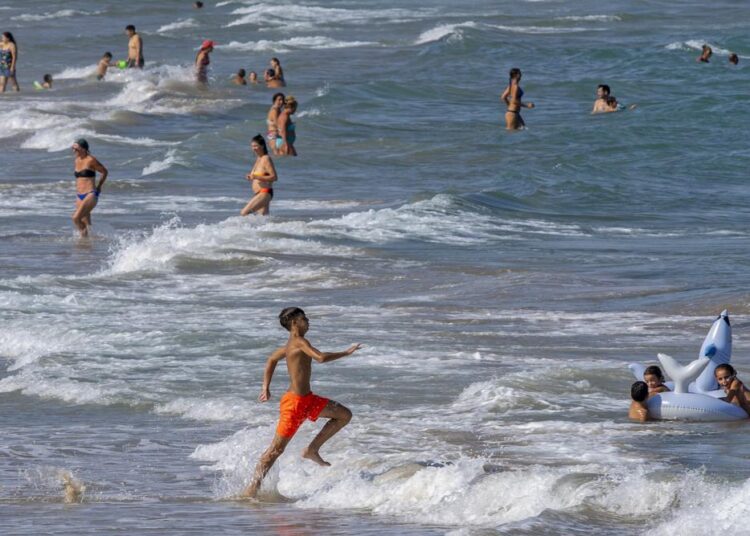MADRID — While vacationers might enjoy the Mediterranean Sea’s summer warmth, climate scientists are warning of dire consequences for its marine life as it burns up in a series of severe heat waves, according to AP.
From Barcelona to Tel Aviv, scientists say they are witnessing exceptional temperature hikes ranging from 3 degrees Celsius (5.4 Fahrenheit) to 5 degrees Celsius (9 Fahrenheit) above the norm for this time of year. Water temperatures have regularly exceeded 30 C (86 F) on some days.
Extreme heat in Europe and other countries around the Mediterranean has grabbed headlines this summer, but the rising sea temperature is largely out of sight and out of mind.
Marine heat waves are caused by ocean currents building up areas of warm water. Weather systems and heat in the atmosphere can also pile on degrees to the water’s temperature. And just like their on-land counterparts, marine heat waves are longer, more frequent and more intense because of human-induced climate change.
The situation is “very worrying,” says Joaquim Garrabou, a researcher at the Institute of Marine Sciences in Barcelona. “We are pushing the system too far. We have to take action on the climate issues as soon as possible.”
Garrabou is part of a team that recently published the report on heat waves in the Mediterranean Sea between 2015 and 2019. The report says these phenomena have led to “massive mortality” of marine species.
About 50 species, including corals, sponges and seaweed, were affected along thousands of kilometres of Mediterranean coasts, according to the study, which was published in the Global Change Biology journal.
The situation in the eastern Mediterranean basin is particularly dire.
Garrabou points out that seas have been serving the planet by absorbing 90 per cent of the earth’s excess heat and 30 per cent of carbon dioxide emitted into the atmosphere by coal, oil and gas production. This carbon-sink effect shields the planet from even harsher climate effects.
This was possible because oceans and seas were in a healthy condition, Garrabou said.
“But now we have driven the ocean to an unhealthy and dysfunctional state,” he said.
While the earth’s greenhouse gas emissions will have to be drastically reduced if sea warming is to be curtailed, ocean scientists are specifically looking for authorities to guarantee that 30 per cent of sea areas are protected from human activities such as fishing, which would give species a chance to recover and thrive.






Discussion about this post